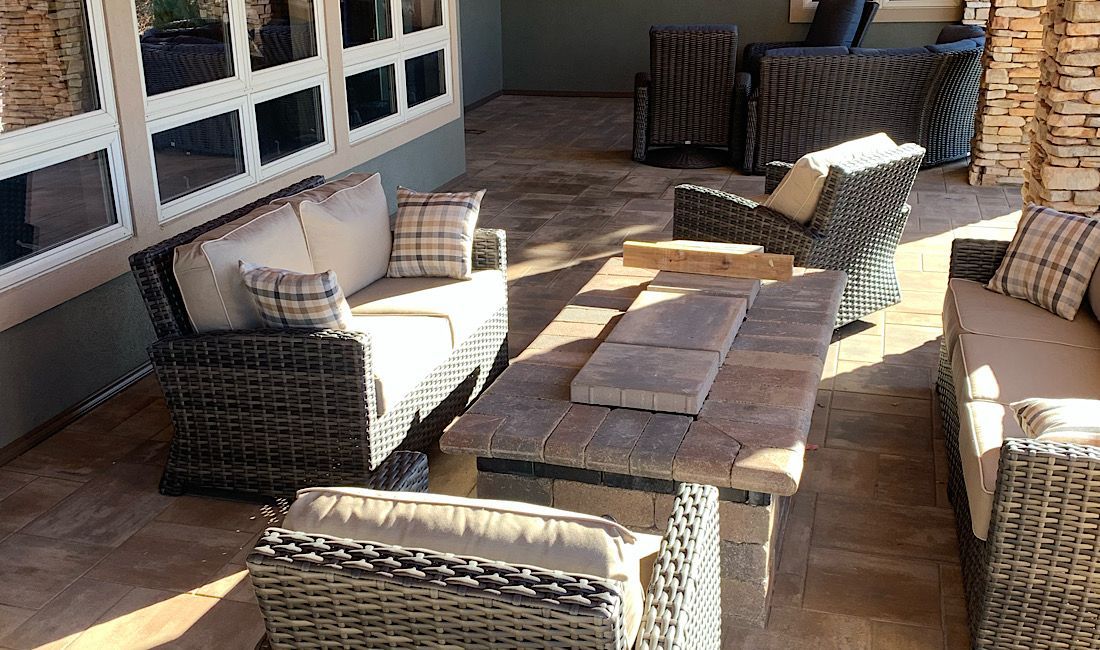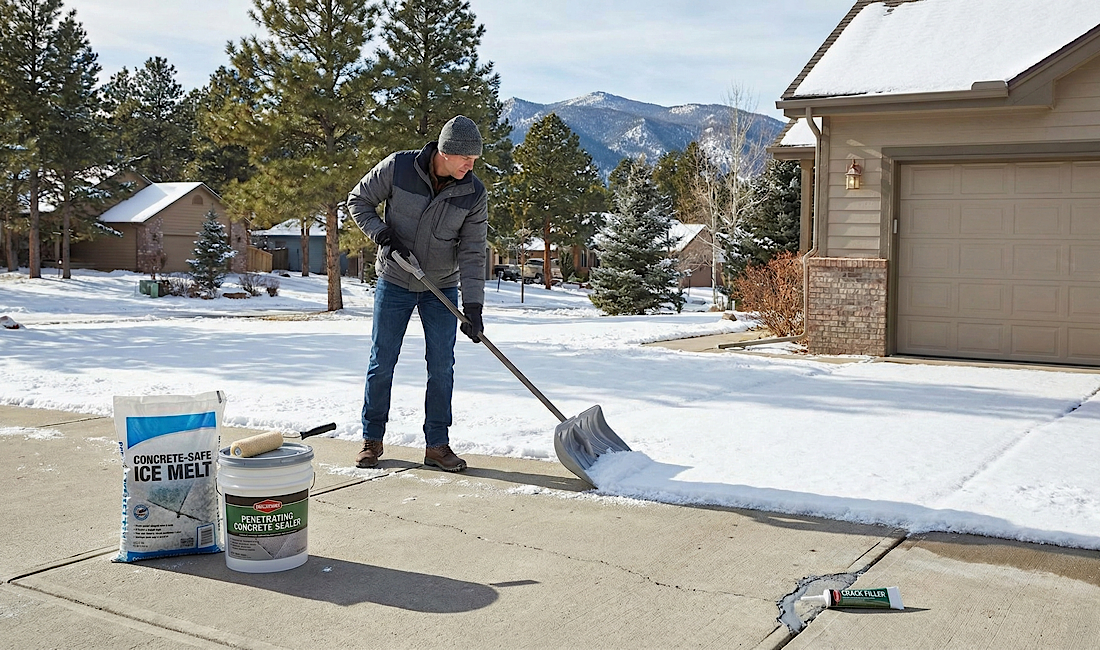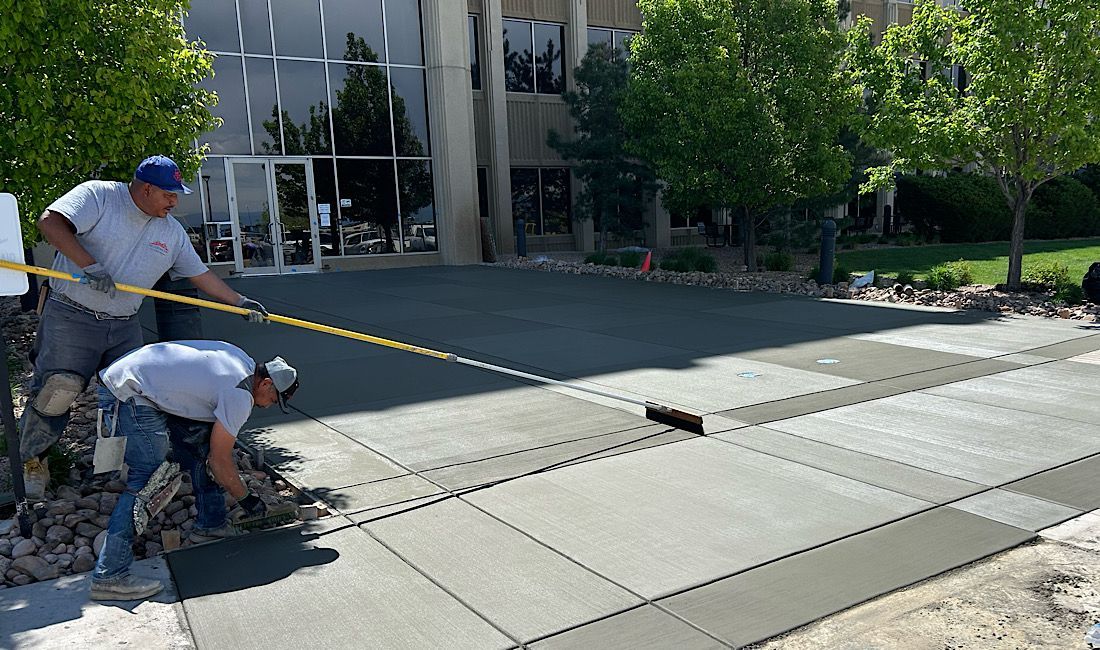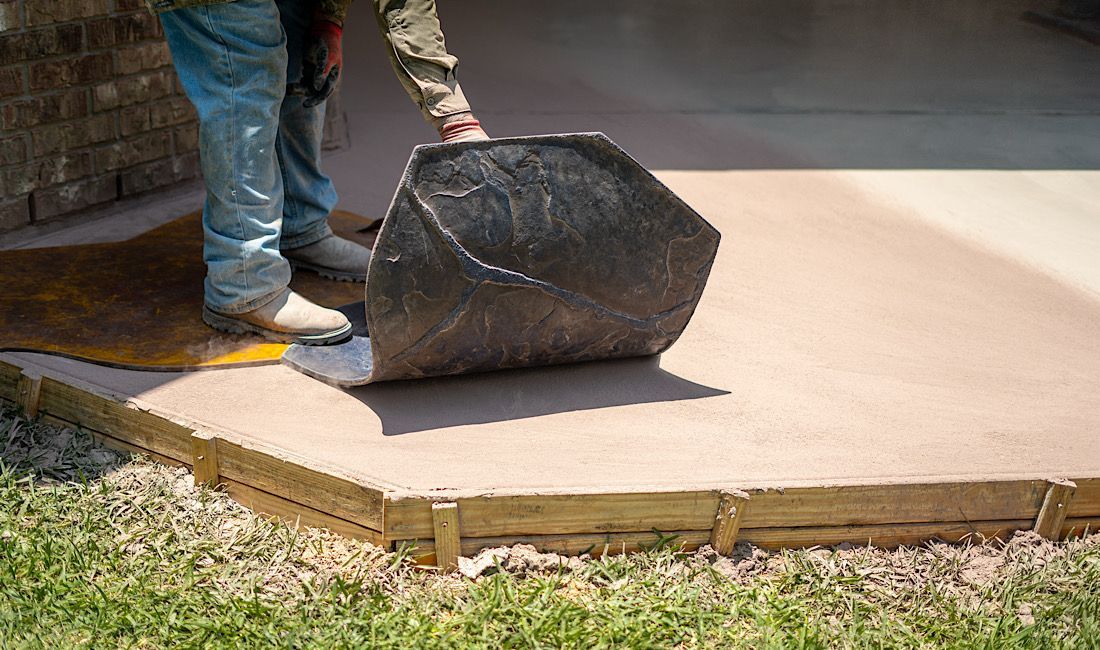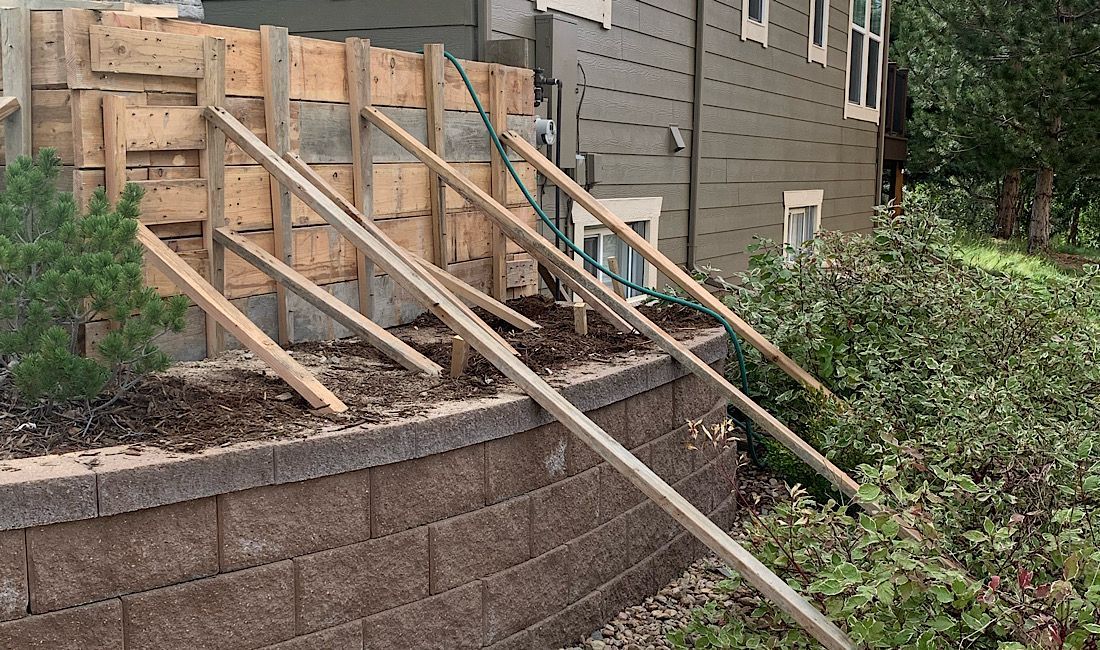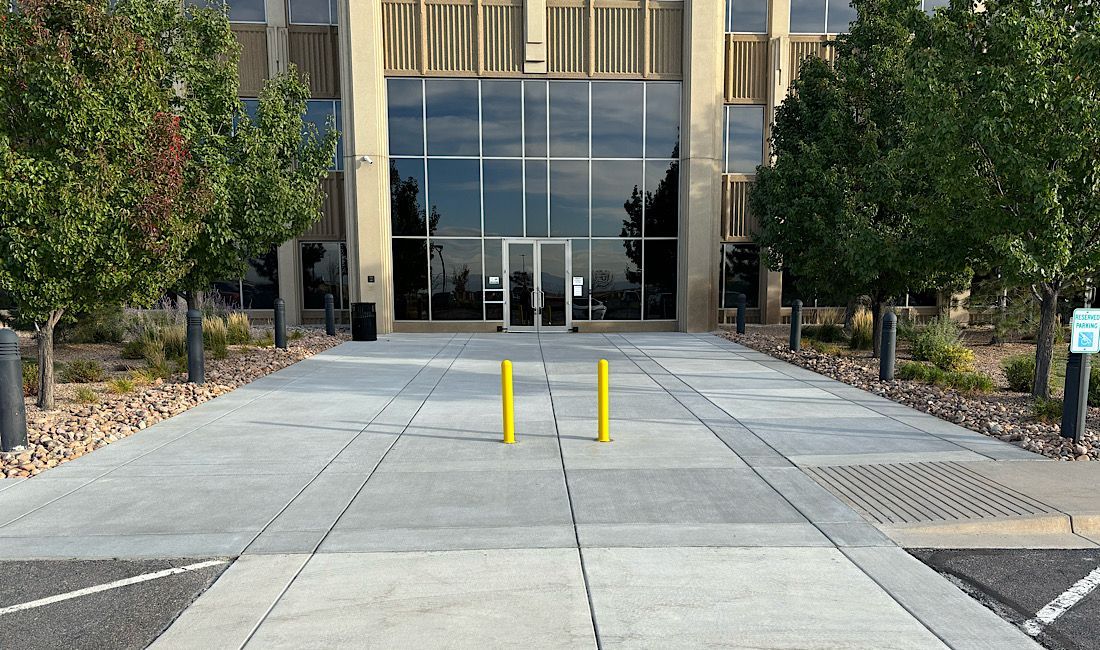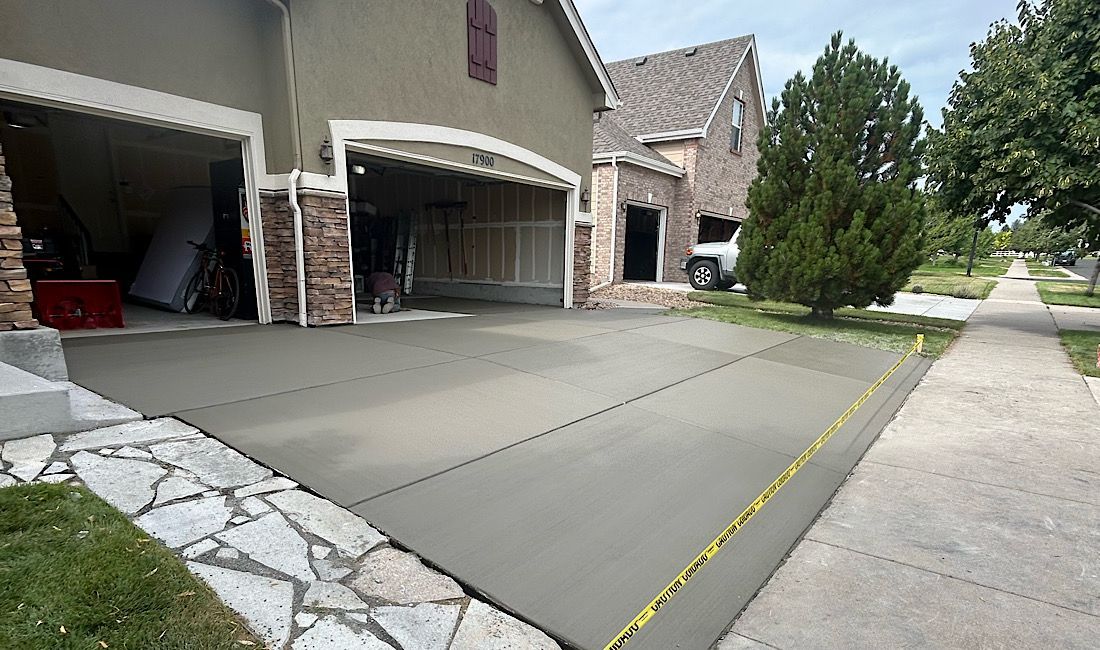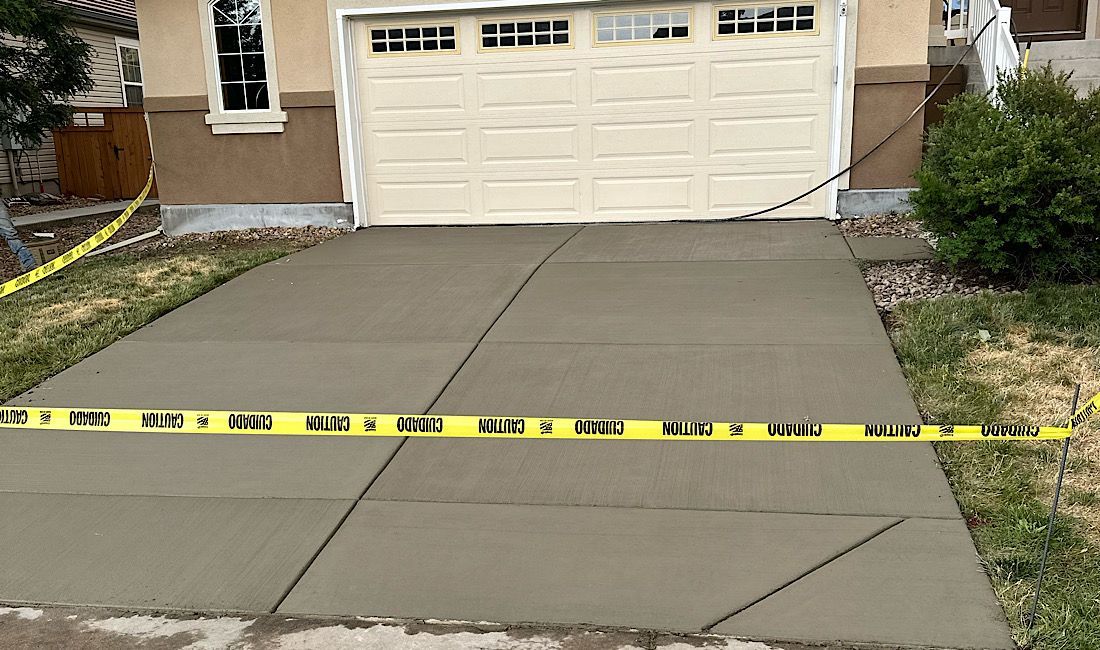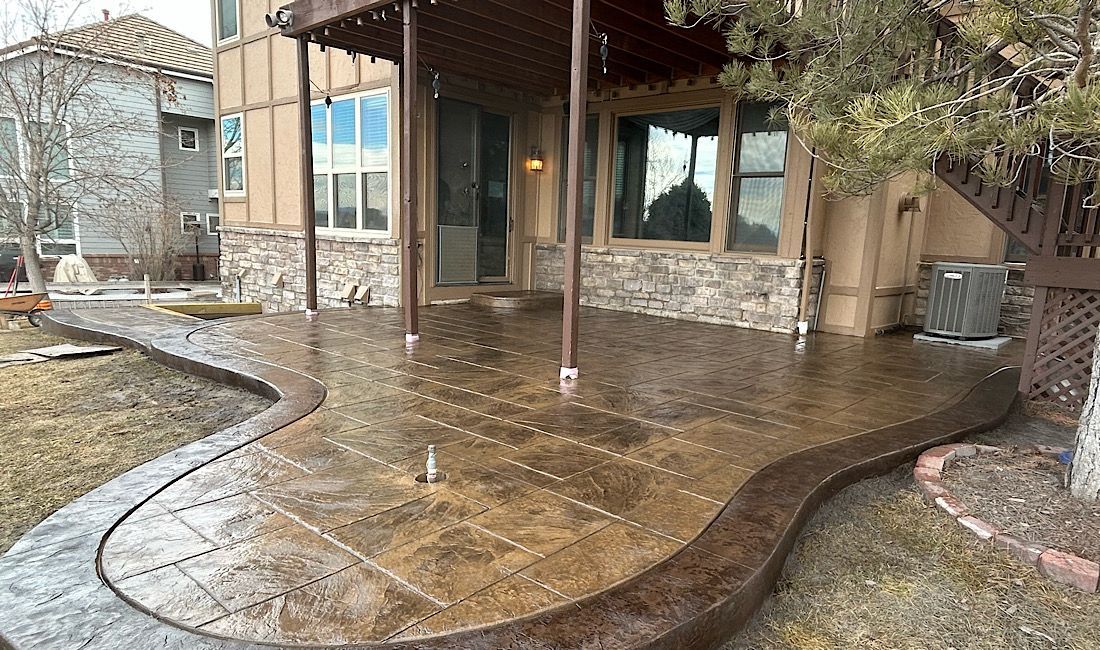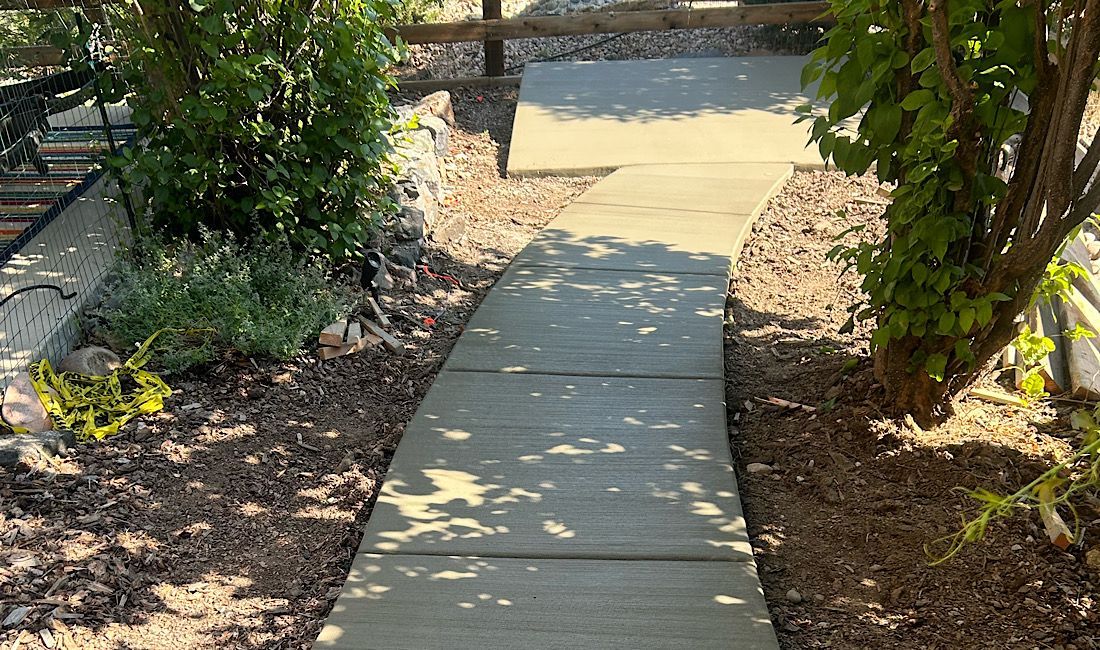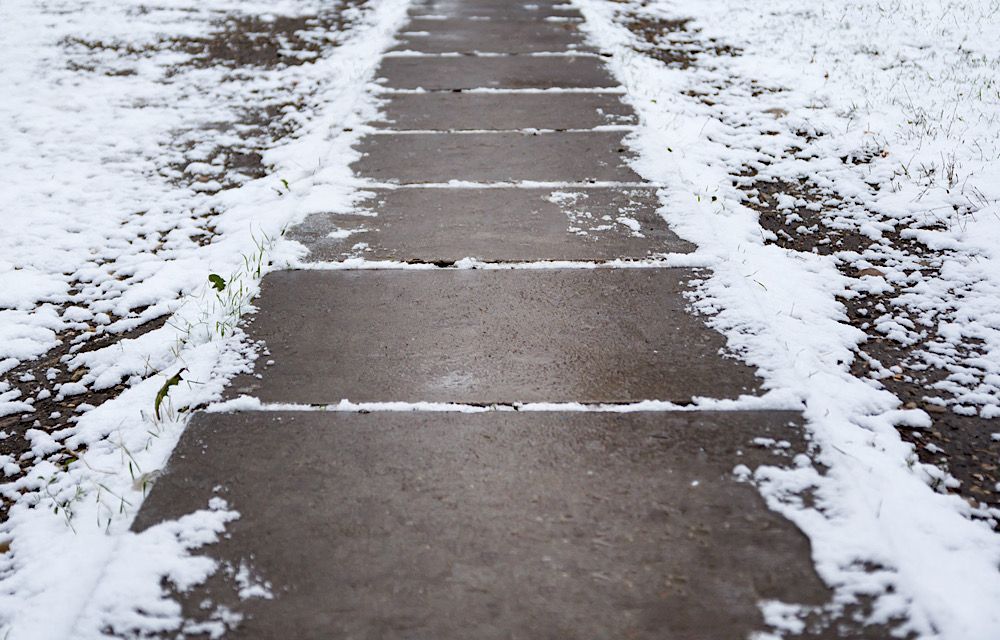
Denver winters can be harsh on concrete surfaces, causing issues like cracks, spalling, and scaling. Addressing these common problems effectively ensures the longevity and durability of your concrete surfaces. This guide explores the most effective solutions for common concrete issues during Denver's winter months.
Understanding Winter Concrete Damage
Winter weather in Denver can wreak havoc on concrete surfaces. The primary causes of damage include freeze-thaw cycles, de-icing chemicals, and snow accumulation. When water seeps into the concrete and freezes, it expands, causing cracks and surface damage.
De-icing chemicals can penetrate the concrete, leading to scaling and deterioration. Heavy snow adds pressure, exacerbating existing damage.
Common Concrete Issues in Winter
Cracks are a frequent problem in winter due to the freeze-thaw cycle. Small cracks can widen and deepen over time, leading to more significant structural issues if not addressed promptly.
Spalling occurs when the surface layer of the concrete peels or flakes off. This is often caused by water entering the concrete and freezing, leading to surface degradation.
Scaling is similar to spalling but usually involves smaller, thinner flakes coming off the surface. It is often caused by the use of de-icing salts, which can penetrate and weaken the concrete.
Effective Solutions for Winter Concrete Issues
Crack Repair
Repairing cracks promptly is crucial to prevent further damage.
Clean the Area: Remove any debris, dirt, and loose material from the crack using a wire brush and a vacuum.
Fill the Crack: Use a high-quality concrete crack filler or sealant to fill the crack. Apply the filler according to the manufacturer's instructions, ensuring it penetrates deep into the crack.
Smooth the Surface: Use a trowel to smooth the surface of the filler, ensuring it is level with the surrounding concrete. Allow it to cure as directed.
Spalling Repair
Addressing spalling involves resurfacing the affected area.
Clean the Surface: Remove loose, flaking concrete using a chisel and wire brush. Clean the area thoroughly with a pressure washer.
Apply a Bonding Agent: Apply a concrete bonding agent to the clean surface to ensure a strong bond between the old and new concrete.
Resurface the Area: Apply a thin layer of concrete resurfacer over the spalled area, smoothing it with a trowel. Allow it to cure according to the manufacturer's instructions.
Scaling Repair
Scaling repair requires careful cleaning and sealing.
Clean the Surface: Remove any loose, scaling material from the concrete using a wire brush and pressure washer. Ensure the surface is clean and dry before proceeding.
Seal the Surface: Apply a high-quality concrete sealer to protect the surface from further scaling. Ensure the sealer penetrates deep into the concrete for maximum protection.
Preventative Measures
Regular maintenance and preventative measures can help minimize winter damage to concrete surfaces. Applying a concrete sealer before the winter season can provide an additional layer of protection against moisture and de-icing chemicals. Ensuring proper drainage around concrete surfaces helps prevent water accumulation and reduces the risk of freeze-thaw damage. Avoiding the use of harsh de-icing chemicals and opting for alternatives such as sand or cat litter can minimize chemical damage to concrete.
Denver winters pose significant challenges for concrete surfaces, but with proper care and timely repairs, you can maintain the integrity and appearance of your concrete throughout the season. From crack repair to addressing spalling and scaling, effective solutions are available to keep your concrete in top condition.
Ready to protect your concrete surfaces from Denver's harsh winter weather?
Contact Creteworx today to learn more about our concrete repair services and schedule a consultation. Ensure your concrete surfaces remain durable and beautiful all winter long with Creteworx's expert solutions.
